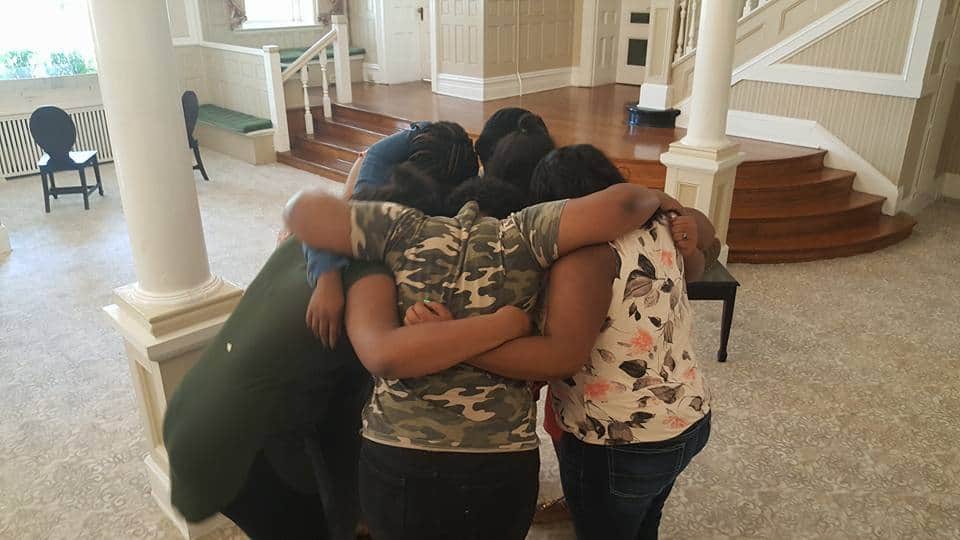Hub City Writers Project presented a four-day residency writing program for black teenage girls in Spartanburg County in July 2016. Other partners included Converse College, the Spartanburg County Foundation, Spoken Word Spartanburg, and Fine Print Ink. Seven young women were selected to attend the intensive Writers Well Youth Fellowship Retreat. South Carolina Humanities supported this program through a Fast Track Literary Grant.
According to Hub City Writers Project, statistics show that 47% of black teen girls write in journals, compared to 31% of white girls, and that college-educated black women are the largest group of readers in America. However, those numbers do not translate to diversity in America’s MFA creative writing graduate programs or to jobs in the publishing field. The Writers Well Youth Fellowship Retreat attempts to address this inequality in Spartanburg County by providing mentorship and nurturing to young black female writers.
One of the organizers of the retreat, Crystal Irby, said: “This transformative retreat not only nurtured writing skills, it helped these young women discover their authentic selves by delving deeper into their identities.” She added that one of the biggest successes of the retreat was that the young women developed a peer group where they can share their work and accept critique.
Hub City Writers Project and the organizers of the retreat will provide additional follow-up with the young writers, including a follow-up workshop, notice of literary opportunities, and featuring the graduates at next year’s retreat.
The mission of SC Humanities is to enrich the cultural and intellectual lives of all South Carolinians. Established in 1973, this 501(c) 3 organization is governed by a volunteer 22-member Board of Directors comprised of community leaders from throughout the state. It presents and/or supports literary initiatives, lectures, exhibits, festivals, publications, oral history projects, videos and other humanities-based experiences that directly or indirectly reach more than 250,000 citizens annually.
